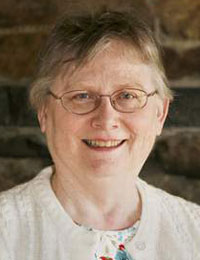 After my previous post, the question came up about whether a widow’s dower right in her husband’s property is an “inheritance,” since, as we traditionally see the term being used in seventeenth-century New England, it is held only for the widow’s lifetime and reverts to her children on her death.
After my previous post, the question came up about whether a widow’s dower right in her husband’s property is an “inheritance,” since, as we traditionally see the term being used in seventeenth-century New England, it is held only for the widow’s lifetime and reverts to her children on her death.
However, I found the following on Wikipedia: “Usually, the wife was free from kin limitations to use (and bequeath) her dower to whatever and whomever she pleased. It may have become the property of her next marriage, been given to an ecclesiastical institution, or been inherited by her children from other relationships than that from which she received it.”
Using this definition, a widow’s dower was an inheritance under her own control, but in practice, we very often see husbands stating in their wills that the widow was to have the use and benefit of the property only during her lifetime or her widowhood and that upon her death or remarriage it was to revert to the heirs he designates in the will. A husband could not reduce or vacate his wife’s dower right to the use and benefit of one third of his estate for her lifetime, but he could give her more than one third and he could dictate her power to dispose of it.
Absent instructions from a husband’s will, or when there was no will, the dower apparently stayed with the widow even when she remarried.
Thomas2 Carter’s second wife was Elizabeth (Bunker) Johnson, the widow of William Johnson of Charlestown. William’s will in 1677 gave to his “beloved wife Elizab. Johnson full power to sell my land on Misticke side…,” from which proceeds she was to make payments to her sons and keep the rest. He gave Elizabeth the remainder of his property “for her comfortable livelihood and if she stand in need of supply I do give her powr to dispose of all my household goods to any of her children either in the time of her life or at her death as shee shall see cause.” After Elizabeth’s death, whatever land remained was to be divided amongst their sons.
Absent instructions from a husband’s will, or when there was no will, the dower apparently stayed with the widow even when she remarried. To avoid having it swallowed up in the new husband’s estate, a pre-marriage contract might be signed, or the second husband’s will might state that whatever his bride had “brought to” the marriage was to be returned to her.
In short, “it’s complicated.”
Share this:

About Alicia Crane Williams
Alicia Crane Williams, FASG, Lead Genealogist of Early Families of New England Study Project, has compiled and edited numerous important genealogical publications including The Mayflower Descendant and the Alden Family “Silver Book” Five Generations project of the Mayflower Society. Most recently, she is the author of the 2017 edition of The Babson Genealogy, 1606-2017, Descendants of Thomas and Isabel Babson who first arrived in Salem, Massachusetts, in 1637. Alicia has served as Historian of the Massachusetts Society of Mayflower Descendants, Assistant Historian General at the General Society of Mayflower Descendants, and as Genealogist of the Alden Kindred of America. She earned a bachelor’s degree from the University of Connecticut and a master’s degree in History from Northeastern University.View all posts by Alicia Crane Williams →